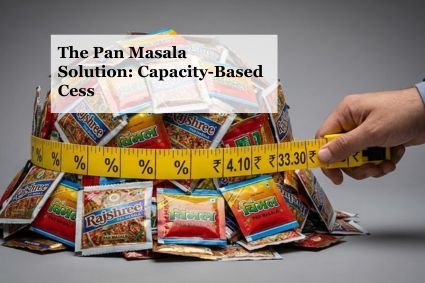Naresh Kumar Versus State of Delhi, Criminal Appeal No.: 1751 of 2017 (2024 LiveLaw (Supreme Court) 443)

The Supreme Court in the present case grapples with the intricate balance between procedural compliance and substantive justice, particularly in cases involving grave offenses punishable with life imprisonment or death. The Apex Court addresses a critical issue of whether a conviction stands justified if the accused is not given an opportunity to explain key incriminating circumstances during their Section 313 examination. In addressing this issue, the Court delves deep into the principles of natural justice, the doctrine of prejudice, and the overarching aim of criminal trials.
The Court acknowledged the seriousness of the charge against the appellant, noting that he was convicted under Section 302 of the Indian Penal Code (murder) with the aid of Section 34 (common intention). The Court emphasized that in cases where extreme penalties like death or life imprisonment are imposable, procedural safeguards ensuring the protection of the accused’s rights must be stringently followed.
The Court then addressed the core issue of non-compliance with Section 313 of the Code of Criminal Procedure (CrPC) citing the maxim “actus curiae neminem gravabit” and referencing the decision in Oil and Natural Gas Company Limited v. Modern Construction and Company[1].
In examining the Section 313 proceedings, the Court found that two crucial incriminating circumstances were indeed not put to the appellant during his examination:
- The alleged exhortation by the appellant to kill Arun Kumar and others in his family.
- The allegation that he had caught hold of the deceased to enable Mahinder Kumar to stab him repeatedly.
The Court noted that these circumstances formed the very foundation of the charge against the appellant and were central to establishing his common intention under Section 34 IPC. Their omission from the Section 313 examination was deemed a serious lapse. While acknowledging that non-compliance with Section 313 does not automatically vitiate a trial, the Court emphasized that it must be shown to have caused material prejudice to the accused. In this case, the Court found such prejudice existed. It pointed out that the trial court’s judgment explicitly relied on these two circumstances to establish the appellant’s common intention, yet he was never given an opportunity to explain them.
The Court rejected the State’s argument based on State of Punjab v. Swaran Singh (2005) 6 SCC 101, which suggested that if an accused had the opportunity to cross-examine witnesses but did not avail the same then omission to question him later under Section 313 would not cause prejudice. The Court distinguished the present case, noting that the very charge framed against the appellant was based on these unquestioned circumstances. Importantly, the Court considered the passage of time since the incident (over 29 years) and the fact that the appellant had already served more than 12 years in prison. Citing its recent decision in Raj Kumar @ Suman v. State (NCT of Delhi) 2023 SCC OnLine SC 609, the Court deemed it unjust to remand the case for a fresh Section 313 examination after such a long period.
The Court concluded that the failure to question the appellant on these crucial circumstances was not a curable defect but a patent illegality that vitiated the trial against him. It was held that this omission had resulted in material prejudice and a clear miscarriage of justice. Based on these findings, the Supreme Court allowed the appeal and set aside the judgments of both the trial court and the High Court in respect of the appellant. The Court acquitted the appellant of all charges against him and ordered his immediate release if not required in connection with any other case. However, the Court was careful to limit the scope of its decision. It explicitly stated that this judgment would not disturb the conviction of the other accused and should not be taken as confirmation of his conviction, leaving open the possibility of a separate appeal by him.
The Court’s ruling underscores the necessity of giving accused persons a fair opportunity to explain all incriminating circumstances, failing which the very foundation of a fair trial may be compromised. By prioritizing the right of the accused to explain every incriminating circumstance, the Court has reaffirmed the foundational principles of natural justice and fair trial. The decision is likely to have far-reaching implications for the Indian criminal justice system.
[1] (2014) 1 SCC 648
By entering the email address you agree to our Privacy Policy.



